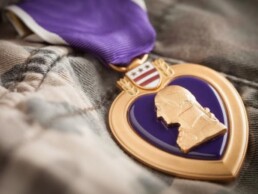From Deployment to Employment: How to Adjust to a Civilian Work Environment
Transitioning from military service to a rewarding career can feel like a daunting undertaking. The work environment and requirements are usually pretty different. What made you successful in the military may not work as well or could even be counterproductive in civilian life.
Many veterans have trouble coping with this adjustment for several reasons:
- The lower stakes lead to boredom.
- The lack of straightforward rules and missions can cause confusion and anxiety.
- Survival behaviors learned during combat, like a flight or fight response, are counter-productive in a work environment.
- Stress and painful memories from deployment can make it difficult to concentrate and remember important information.
- Military skills don’t always translate to a new work environment.
But the structure and discipline you mastered during your military service can also help you succeed in a civilian work environment. Here are a few things to remember:
Focus on your health.
- See a doctor when necessary and only take medications as prescribed.
- Stay away from unhealthy foods (high fat, high sugar).
- Don’t use non-prescribed drugs or drink alcohol excessively.
- Keep a routine—get enough sleep, exercise regularly, eat at the same time each day.
Learn and practice communication skills.
- Maintain polite and friendly communication with co-workers
- Ask for help about talking about deployment with colleagues
- Learn the appropriate ways to handle conflict and criticism, taking into account the culture of your workplace.
Practice organization
- Keep you workspace neat
- Make task lists
- If you have trouble staying focused, write your thoughts in a journal or notebook.
Create your own structure
- Assess your values and make a list.
- Determine the ways your job fits with your values.
- To identify your values, ask yourself questions like:
- What kind of an employee do I want to be? Hard-working? Dependable? A trustworthy officer?
- What parts of work are important to me? Using and building my skills? Fixing problems? Leading a team of people?
- What do I like about my current job? The way people treat each other? The feeling of accomplishment? Good benefits?
- How does this job fit with serving my country?
- Set long-term goals, like an ideal future position or promotion, and then set short-term goals that will help you achieve them.
- Stay current on training and the technology used in your field.
If you are looking for some training, check out Purple Heart’s Veterans Vocational Technical Institute.
If you want to go back to school and complete an undergraduate degree, learn about Purple Heart scholarships.
For career counseling or other services, find a National Service Officer near you.
Resources:
TurboTAP (Transition Assistance Program)
Veterans’ Employment and Training Services
Military.com Veteran Employment Center
Honoring Purple Heart Month
As we begin the month of August, it is our great pleasure to welcome you to
Purple Heart Month!
This month is dedicated to paying our respects to all the brave men and women wounded or killed in combat. The official Purple Heart Day is observed on the 7th day of August each year, commemorating the historic day in 1782 that General George Washington, Commander-In-Chief of the Continental Army, commissioned the first Purple Heart Medal, originally called the Badge of Military Merit.
The Badge of Military Merit is a purple, heart-shaped piece of silk bound with a thin edge of silver with the word merit embroidered in silver across the face. Only 3 Badges of Military Merit were awarded. The Badge of Military Merit was redesigned and re-commissioned in 1932 by General Douglas McArthur in honor of George Washington’s bicentennial birthday. Now known as the Purple Heart Medal – it is the oldest military award, first being awarded to soldiers in World War I and still given to soldiers today.
A presidential order signed in 1942 permitted the Purple Heart Medal to be awarded to all branches of the military including the U.S. Coast Guard. It was World War II, when the qualification to receive the Purple Heart Medal changed to honor those who were wounded or killed in combat – that is why it’s recipients often call it “the medal that nobody wants”. It is unknown how many soldiers actually received it. However, we know that the soldiers listed below are some of the most awarded Purple Heart Recipients in history:
Robert T. Frederick, U.S. Army: World War II (8)
David H. Hackworth, U.S. Army: Korean War (3), Vietnam War (5)
Joe Hooper, U.S. Army, Medal of Honor: Vietnam War (8)
Robert L. Howard, U.S. Army, Medal of Honor: Vietnam War (8)
William Waugh, U.S. Army: Vietnam War (8)
It took the Purple Heart medal many years to evolve into what it is today. Today, on the reverse of the medal, “FOR MILITARY MERIT” is inscribed. The medal itself is made of brass with a gold color to it, and also contains a bust of George Washington and his coat of arms. The purple color represents the blood of all those who have made sacrifices in war, but traditionally it represent the courage of those who serve. The original color of the medal George Washington created was purple, so it was only fitting that it would be used to honor his memory in the new medal.
The Military Order of the Purple Heart (MOPH) was formed in 1932. It is composed exclusively of men and women who have received the Purple Heart Medal and is the only Veteran’s Service Organization whose membership is comprised solely of “combat-wounded veterans”.
The Military Order of the Purple Heart Service Foundation, also known as the Purple Heart Foundation, was later created in 1957 as a non-profit organization. For more than 60 years, the Purple Heart Foundation has solely dedicated itself to funding programs and services that support our nation’s heroes. Donate to show your support of the Purple Heart Foundation and to help us continue to serve our nation’s veterans who have already sacrificed so much.
DONATE


